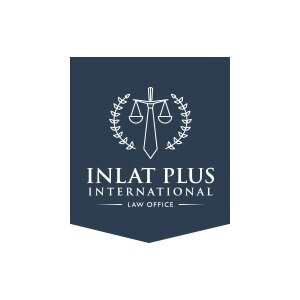Best Estate Planning Lawyers in Riga
Share your needs with us, get contacted by law firms.
Free. Takes 2 min.
List of the best lawyers in Riga, Latvia
About Estate Planning Law in Riga, Latvia
Estate planning law in Riga, Latvia, involves the management and distribution of an individual's assets in the event of their incapacitation or death. This legal field encompasses wills, trusts, inheritance laws, powers of attorney, and related property rights. The civil law system in Latvia, which is based on written codes and legislation, governs estate planning. It is designed to provide clarity and security for the distribution of a person’s estate, ensuring that their wishes are honored and loved ones are provided for.
Why You May Need a Lawyer
Legal assistance in estate planning is often sought in a variety of situations, including but not limited to:
- Creating a will or revising an existing one.
- Setting up trusts for asset management and protection.
- Understanding and planning for inheritance taxes.
- Establishing powers of attorney for healthcare and financial decisions.
- Designing a succession plan for a family business.
- Navigating the process of probate and estate administration.
- Managing cross-border estate issues for international families.
- Resolving disputes arising from the interpretation of wills and inheritance rights.
Given the complexity and legal intricacies involved in these matters, the guidance of a knowledgeable estate planning lawyer can be invaluable.
Local Laws Overview
Latvia’s estate planning law emphasizes the importance of codified legal documents and procedures. Key aspects include:
- The Civil Law of Latvia (Latvijas Civillikums), which widely covers inheritance and property rights.
- The necessity of a will to dictate the distribution of an individual's estate, subject to specific formal requirements for validity.
- Intestate succession laws that govern the estate distribution in the absence of a valid will.
- Regulations pertaining to mandatory heirs, who are entitled to a lawful share of the estate regardless of the testator's wishes in certain circumstances.
- The role of notaries in certifying legal documents and their involvement in the probate process.
Understanding local laws is crucial, as they dictate the legal process and the distribution of assets upon one's death.
Frequently Asked Questions
What is a will and why do I need one in Latvia?
A will is a legally binding document stating how you want your assets distributed after your death. In Latvia, having a will ensures that your estate is distributed according to your wishes rather than default inheritance laws.
Who can inherit under Latvian law?
Latvian law recognizes relatives, including spouses, children, and parents, as potential heirs. In the absence of close relatives, more distant kin may inherit. Non-relatives may inherit only if named in a valid will.
What is a mandatory share in inheritance?
In Latvia, certain heirs, such as minor children or a spouse, are entitled to a mandatory share of your estate, which can limit your ability to distribute your assets freely.
Can I appoint an executor for my estate?
Yes, you can appoint an executor in your will to manage and distribute your estate according to your instructions. This role is typically fulfilled by a relative, friend, or professional like a lawyer.
How is estate tax handled in Latvia?
Latvia does not impose an estate tax, but other taxes might be relevant, such as the personal income tax on the inherited property. Consulting a lawyer is advisable to understand the tax implications.
What happens if I die without a will in Riga?
If you die intestate (without a will), your estate will be distributed according to the intestate succession laws, which follow a set order of heirs, starting with your closest relatives.
Can I leave my assets to a charity?
You have the freedom to leave part or all your assets to a charity in your will, provided you respect the mandatory share for protected heirs.
Is it necessary to go through probate in Latvia?
Yes, the probate process is necessary to legally transfer the estate of the deceased to heirs, which involves certification by a notary.
Can estate planning include provisions for my pets?
Although pets are considered property under Latvian law, you can include specific instructions or set up a trust for the care of your pets.
How can I ensure my healthcare wishes are respected if I become incapacitated?
By creating a durable power of attorney, you can appoint someone you trust to make healthcare decisions on your behalf if you’re unable to do so.
Additional Resources
Individuals seeking more information should consider the following resources:
- The Latvian Chamber of Notaries can provide official advice and assist in the probate process.
- The Civil Law of Latvia for comprehensive understanding of local legal provisions.
- Estate planning seminars or workshops hosted by legal firms in Riga for educational purposes.
Next Steps
If you require legal assistance in estate planning, the next steps are:
- Compiling a comprehensive list of your assets and liabilities.
- Dissecting your wishes for asset distribution and potential guardianship of minors or dependents.
- Researching and contacting reputable estate planning lawyers or law firms in Riga.
- Setting up a consultation to discuss your particular needs and begin the estate planning process.
Professional legal guidance is crucial throughout this process, to ensure that your estate plan is robust, tax-efficient, and compliant with local laws and regulations.
Lawzana helps you find the best lawyers and law firms in Riga through a curated and pre-screened list of qualified legal professionals. Our platform offers rankings and detailed profiles of attorneys and law firms, allowing you to compare based on practice areas, including Estate Planning, experience, and client feedback.
Each profile includes a description of the firm's areas of practice, client reviews, team members and partners, year of establishment, spoken languages, office locations, contact information, social media presence, and any published articles or resources. Most firms on our platform speak English and are experienced in both local and international legal matters.
Get a quote from top-rated law firms in Riga, Latvia — quickly, securely, and without unnecessary hassle.
Disclaimer:
The information provided on this page is for general informational purposes only and does not constitute legal advice. While we strive to ensure the accuracy and relevance of the content, legal information may change over time, and interpretations of the law can vary. You should always consult with a qualified legal professional for advice specific to your situation.
We disclaim all liability for actions taken or not taken based on the content of this page. If you believe any information is incorrect or outdated, please contact us, and we will review and update it where appropriate.











